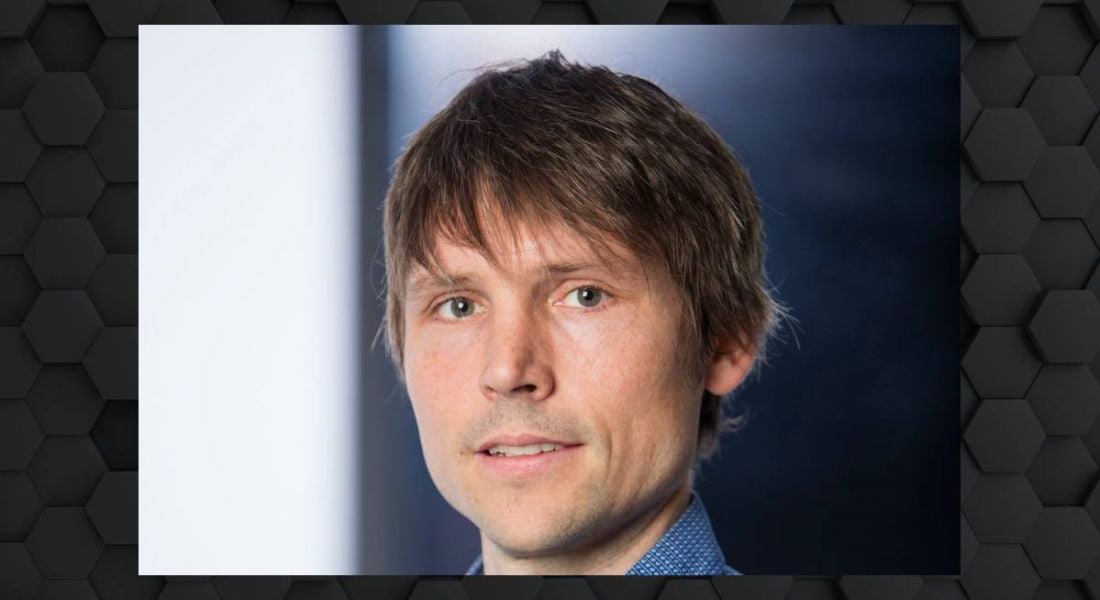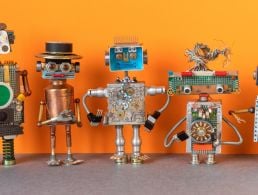Data scientist Oisín Boydell is working on a project that seeks to democratise access to an ever-increasing volume of Earth observation data.
Dr Oisín Boydell is principal data scientist and head of the applied research group at CeADAR, the centre for applied AI at University College Dublin (UCD), which is funded by Enterprise Ireland and IDA Ireland. His primary research interests include trustworthy AI, deep learning, natural language processing and applications of AI to Earth observation data.
After working as a software developer in the UK, Boydell returned to UCD to undertake a PhD in computer science, researching novel approaches for personalised information retrieval.
Prior to joining CeADAR he worked with SMEs and multinationals on big data analytics and machine learning solutions for the telecommunications industry.
At CeADAR, Boydell leads applied research projects in collaboration with industry partners across a broad range of technology areas including machine learning, deep learning, blockchain and recommender systems.
‘Being a data scientist isn’t purely just about programming computers’
– OISÍN BOYDELL
If there is such a thing, can you describe a typical day in the job?
There isn’t really a typical day in my role as it is so varied. We have introduced blended working, so I have days where I am remote working from home and other days I work from the CeADAR offices at UCD.
I also would spend some time at client company sites, working with them to understand their needs and what they hope to achieve using AI technology. It is very important to have those close interactions with companies and, while Zoom is great, nothing beats sitting with a client in a room where they can physically show me their products and challenges.
Having said that, I still do spend a lot of time on Zoom but I also make sure I carve out time every day to delve deep into understanding and developing tech solutions – remote working has been great for this part of the job. I also travel abroad to scientific conferences (not as much since Covid but events are coming back now) to ensure that I stay up to date with innovations in my field.
What types of project do you work on?
The projects I work on involve developing novel solutions for our industry partners that leverage cutting-edge, innovative new developments in AI and related technologies. I find it a very exciting space to work in.
One of the interesting projects I am working on at the moment is a major collaborative project across Europe to design a new master’s programme in artificial intelligence that addresses human and ethical issues around AI. CeADAR’s role is as an AI excellence centre supporting the development of the master’s programme and bringing our knowledge of real-world application and the challenges of AI from a human-centred perspective – including trustworthiness, ethics, privacy etc.
Another interesting project is the CAMEO project, which UCD secured funding for under the Department of Enterprise, Trade and Employment’s Disruptive Technology Innovation Fund. CAMEO stands for Creating an Architecture of Manipulating Earth Observation data and is focused on establishing a new Earth observation platform for non-specialist users.
The project seeks to democratise access to an ever-increasing volume of Earth observation data to develop a sustainable, internationally trading Earth observation services sector in Ireland. Although the project is being led in UCD, we are working with a range of exciting companies and organisations on it.
What skills do you use on a daily basis?
While my background is very technically focused – and I still am quite hands-on from that perspective – I also spend a lot of my day on organisational and management tasks to make sure everything runs smoothly.
Being a data scientist isn’t purely just about programming computers and understanding technology – there is a lot of liaising with various stakeholders so there is a real human element to the role.
You have to be very organised as there are a lot of teams, stakeholders and management to co-ordinate. My role leading the applied research group at CeADAR means I am closely involved with all my amazing and talented colleagues so you do need to have people management skills and be able to talk to colleagues on the team about both their personal needs and career development. I try to be very open and approachable.
What are the hardest parts of your working day?
Juggling different demands across different types of projects and context switching between different focus areas can be challenging. You have to make sure you are keeping up with the latest developments in AI and machine learning as well as practically working through technical challenges.
All of this requires dedicated time without distractions. I really believe that this is crucial to the role. I have to actively plan this into my schedule and make sure I turn off all notifications so I have time to focus – which is easier said than done!
But developing technical solutions is a very creative activity, and you can’t be creative if you don’t give yourself the space and time to explore.
Do you have any productivity tips that help you through the day?
I find it very important to switch off and reset at the end of each day. This helps me think of things in a fresh light, and from different perspectives. For me, a walk in the evening with family or a mountain bike ride are two great ways for me to switch off.
What skills and tools are you using to communicate daily with your colleagues?
We use all the usual ones. Internally, we use Slack, Basecamp, Zoom, Teams, etc to communicate and collaborate. We also have an active online community that is open to anyone with an interest in AI. But nothing beats a less structured chat over a coffee or beer with colleagues.
How has your role changed as AI sector has grown and evolved?
When AI was less of a household term (maybe only something people had heard of from sci-fi movies) and the technology was less mature, we would often spend a lot of time with companies and industry partners in ‘selling’ its capabilities and overcoming people’s reservations about taking the leap into something new.
It was often only the more adventurous, pure technology companies that were embracing it. More recently, AI has become a buzzword – which also has its drawbacks – and many companies are now afraid of missing out. I can spend more time getting straight to the point with industry partners in identifying opportunities and developing AI solutions rather than explaining what AI or machine learning is.
What do you enjoy most about the job?
I love the variety it brings and the opportunity to stay abreast of new innovations and being involved in cutting-edge projects.
AI and machine learning are such rapidly evolving fields that there are amazing new achievements every week, surpassing what people thought was previously possible – it is very exciting.
It is also very satisfying to be able to really provide value to companies and help them to leverage these innovations.
10 things you need to know direct to your inbox every weekday. Sign up for the Daily Brief, Silicon Republic’s digest of essential sci-tech news.




